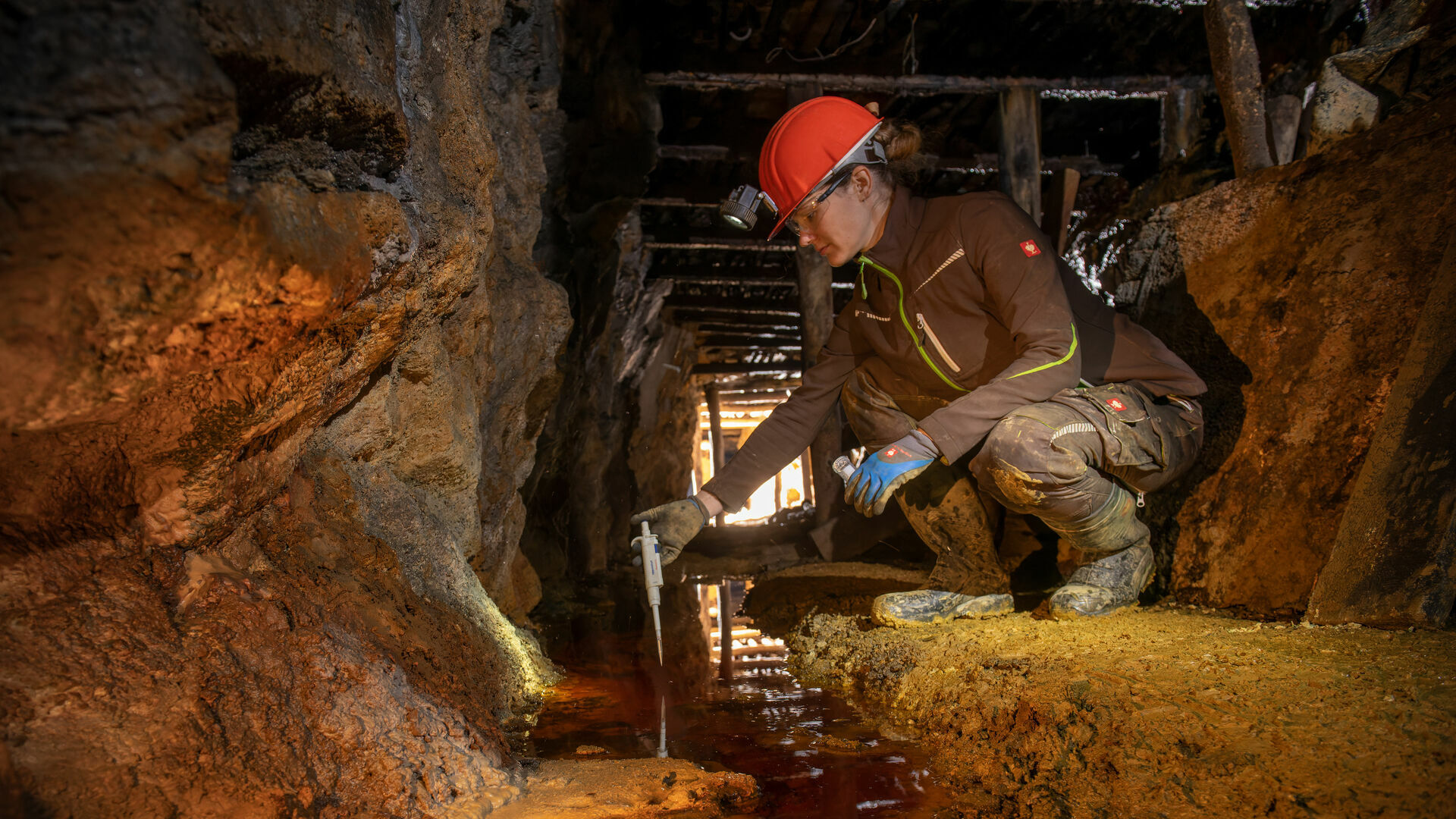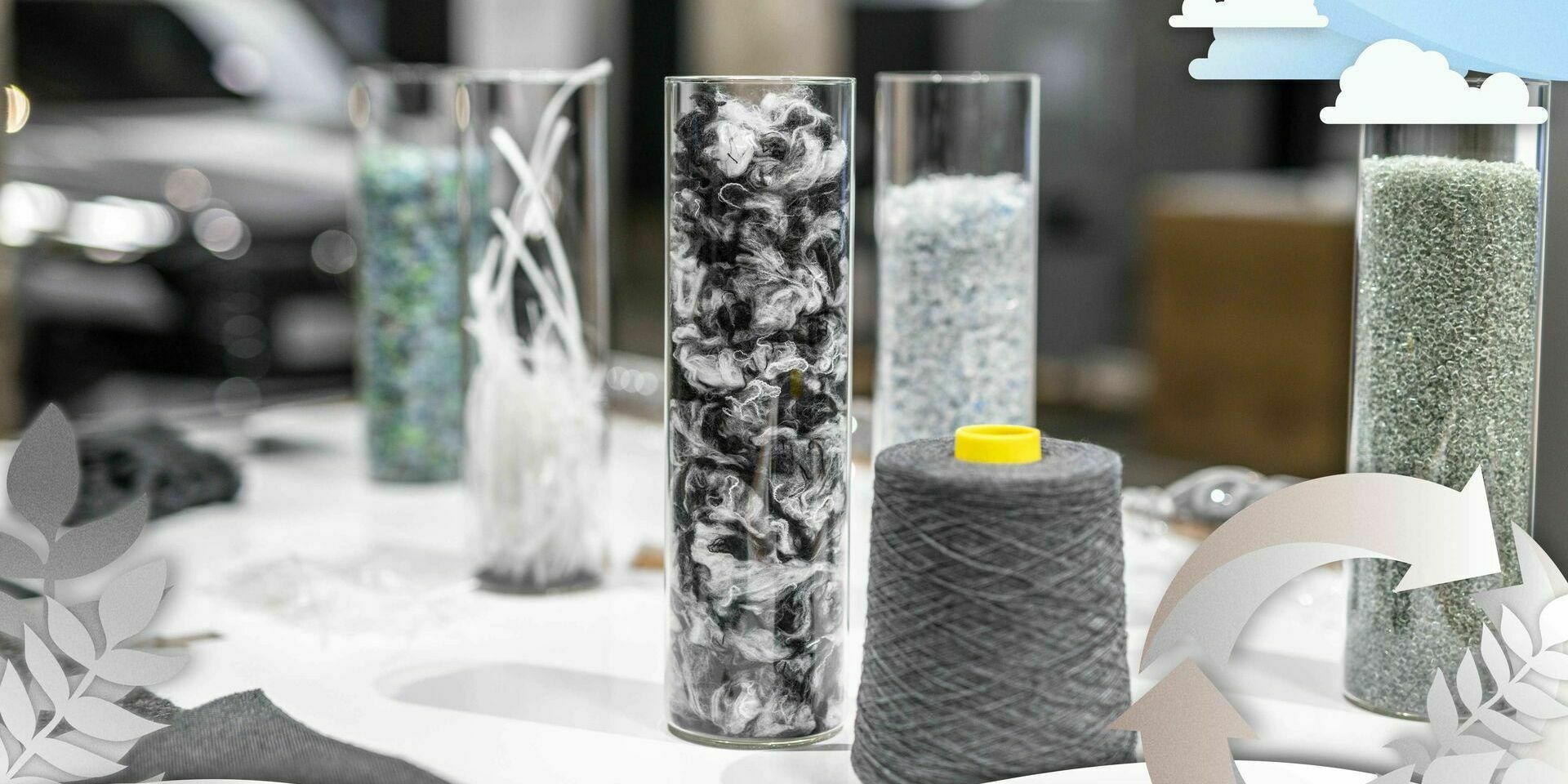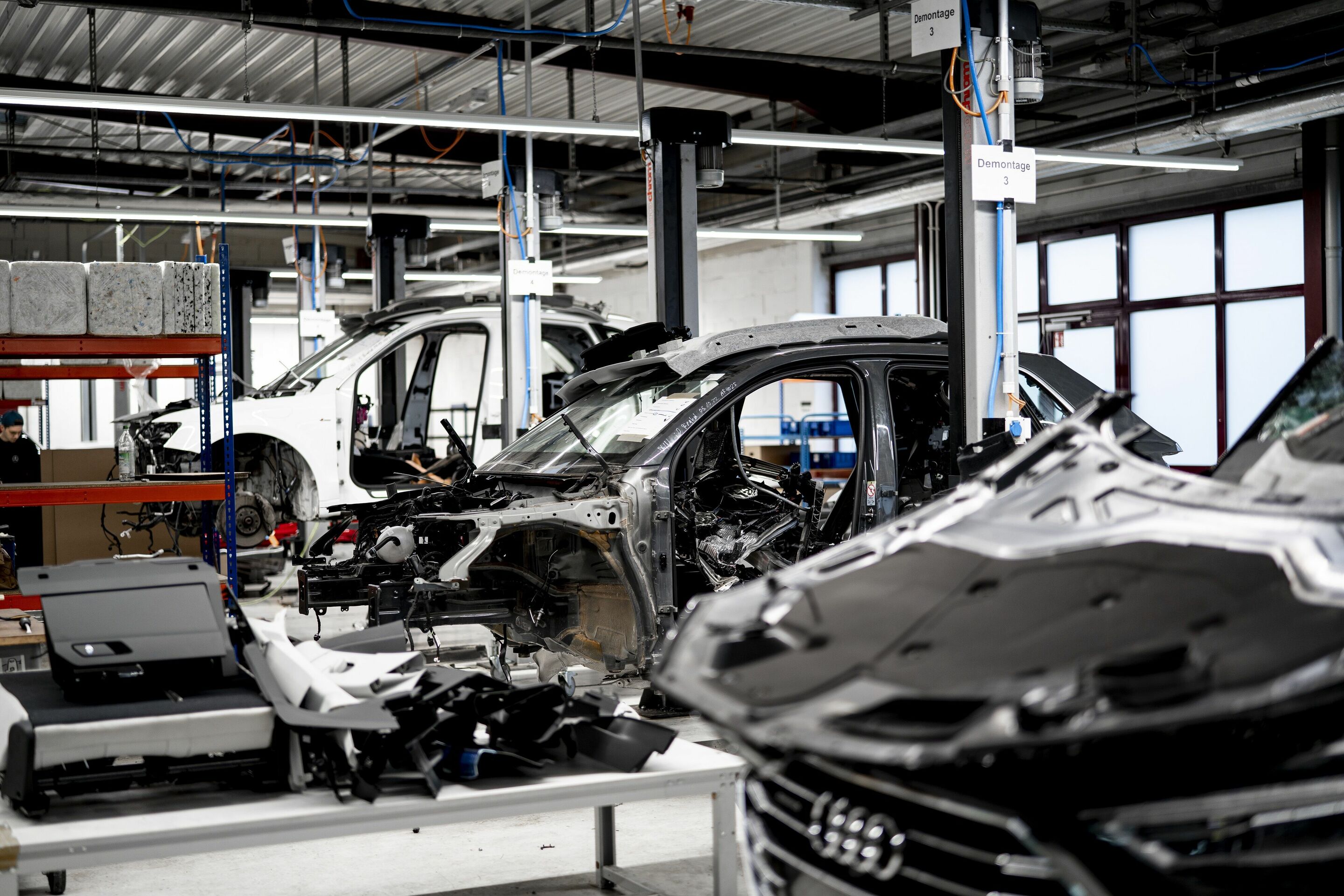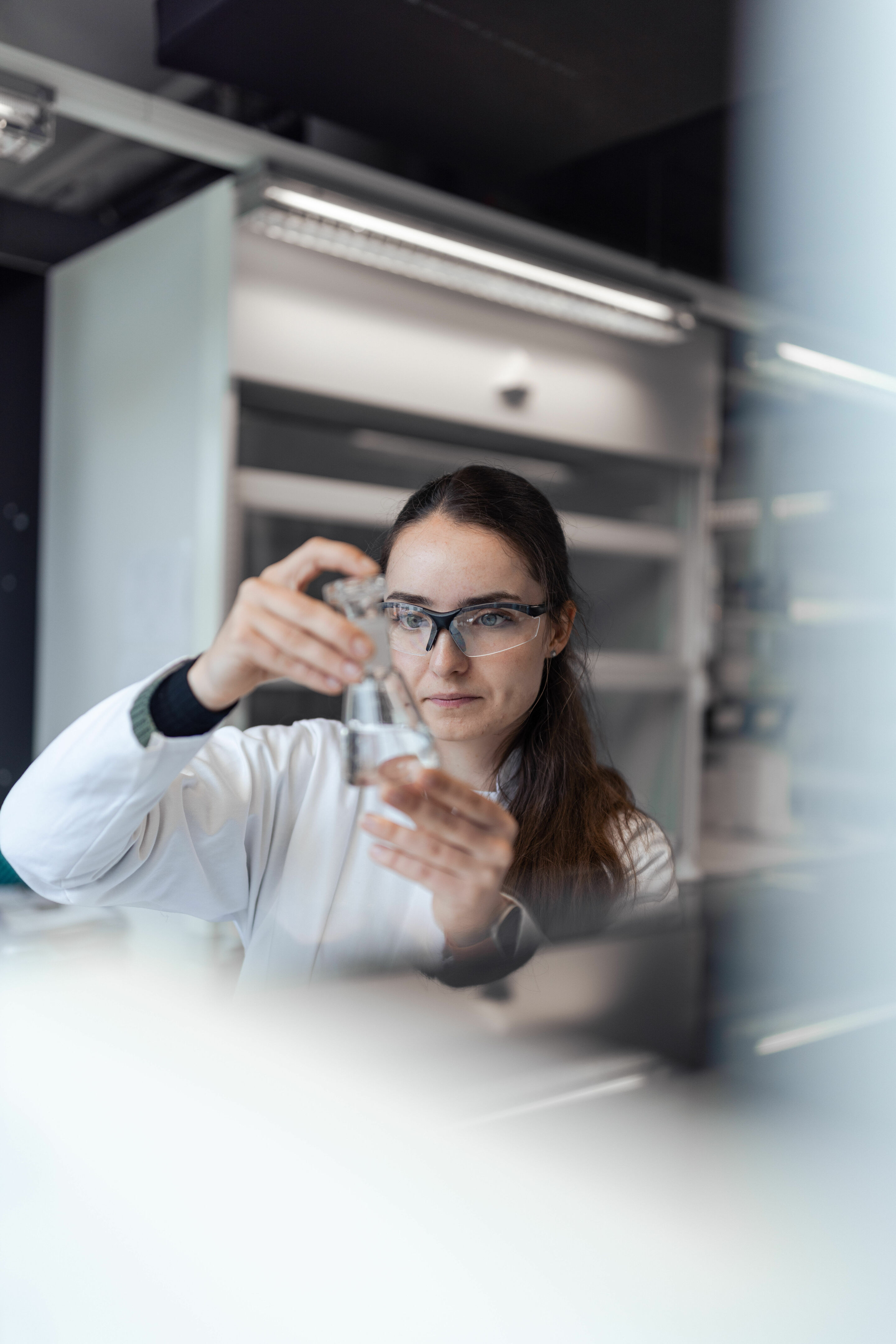Search
All search results for "Circular Economy "
(69)
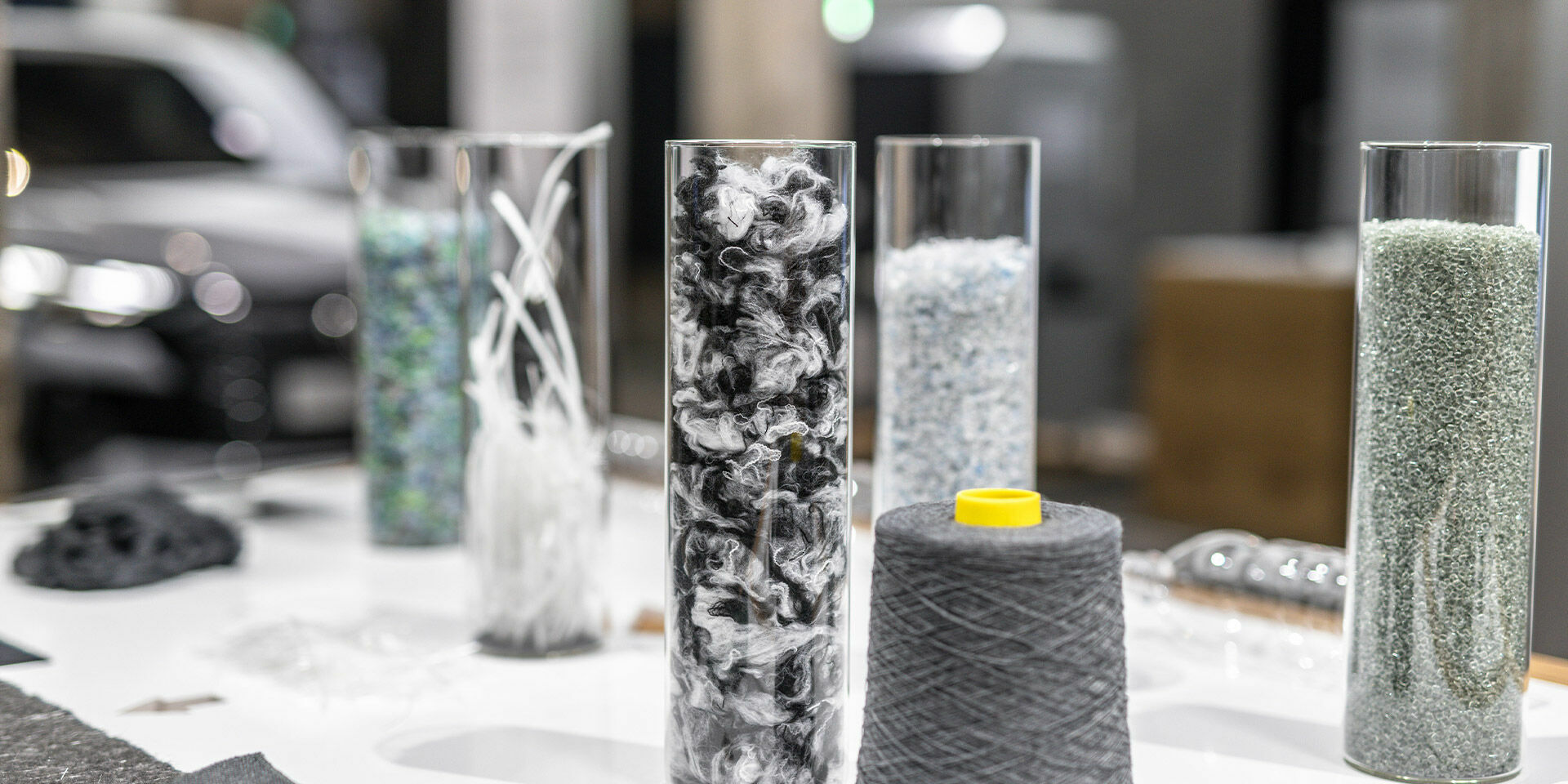 Circular economy
Circular economy
Circular economy: keeping materials in the cycle with no loss of quality
The circular economy is an alternative to linear economies, which primary rely on easily accessible primary raw materials and low-cost energy. In simple terms, the two concepts differ in their use of resources. In a linear economy, raw materials are processed once and disposed of after use. In contrast, a circular economy works by reprocessing raw materials multiple times in their original quality and reusing them again and again for the production of goods and commodities. Key steps in this approach include the maintenance, repair, refurbishment, and finally, recycling of parts and components. The circular economy is based on the idea that all parts can be used sustainably, especially if they are in operation for as long as possible and if they are used for their initial manufactured purpose without being downcycled. Among other benefits, the reuse of valuable resources can help reduce our dependency on critical primary raw materials. It can also reduce the carbon footprint when the processing of used materials results in lower emissions than the production of new primary materials. For all these reasons, Audi views the responsible use of raw materials as a central aspect of future-oriented automobile production. The aim is to develop and produce vehicles in a more resource-efficient and recycling-friendly manner, to keep them in use for as long as possible, and to recycle them to the best possible extent at the end of life. After a vehicle’s utilization phase, its materials are returned to the value chain, capturing more key resources in ‘closed cycles’ where they remain in use and decrease the need for new materials. In this endeavor, Audi follows a holistic concept based on the principles of reduce, reuse, and recycle.
Reduce: fewer primary materials, longer utilization phase
The reduce principle encompasses measures during the production process and the downstream utilization phase.
 Circular economy: Audi secures strategic and cost-efficient supply of recycled raw materials
Circular economy: Audi secures strategic and cost-efficient supply of recycled raw materials
Audi reaches a milestone and continues to drive forward the circular economy in the automotive industry. The company wants to increase the use of secondary materials in vehicles where it is technically feasible and makes ecological and economic sense. The aim is to increasingly use raw materials for new purposes after their initial usage has ended. Audi has therefore been testing approaches to implement this in the MaterialLoop program since 2023. After initially focusing on technical feasibility, the company has now become the first car manufacturer to develop and implement an economically viable recycling concept for recyclates from end-of-life vehicles together with its partner TSR Resource. In this process, steel scrap from vehicles at the end of their life cycle is turned into high-quality post-consumer secondary material and secured for further use in the automotive supply chain.
In the first stage of expansion, starting in 2025, Audi will make several thousand preproduction vehicles available for recycling. These will be shredded by TSR Resource and processed into high-quality recycled raw materials for further use in the automotive industry. In return, Audi will have access to the secondary material obtained from these vehicles, which will be credited to a so-called digital material account. Potential material and part suppliers can access this credit balance as part of a tendering process. This gives potential contractual partners of Audi exclusive access to high-quality recycled steel raw materials that can otherwise be subject to significant price fluctuations. Economical return concept promotes resilience and recycling in the supply chain Audi plans to implement the process for additional material flows and vehicles. All raw materials that Audi currently purchases or will purchase in the future with a binding recyclate content for its vehicles are eligible.
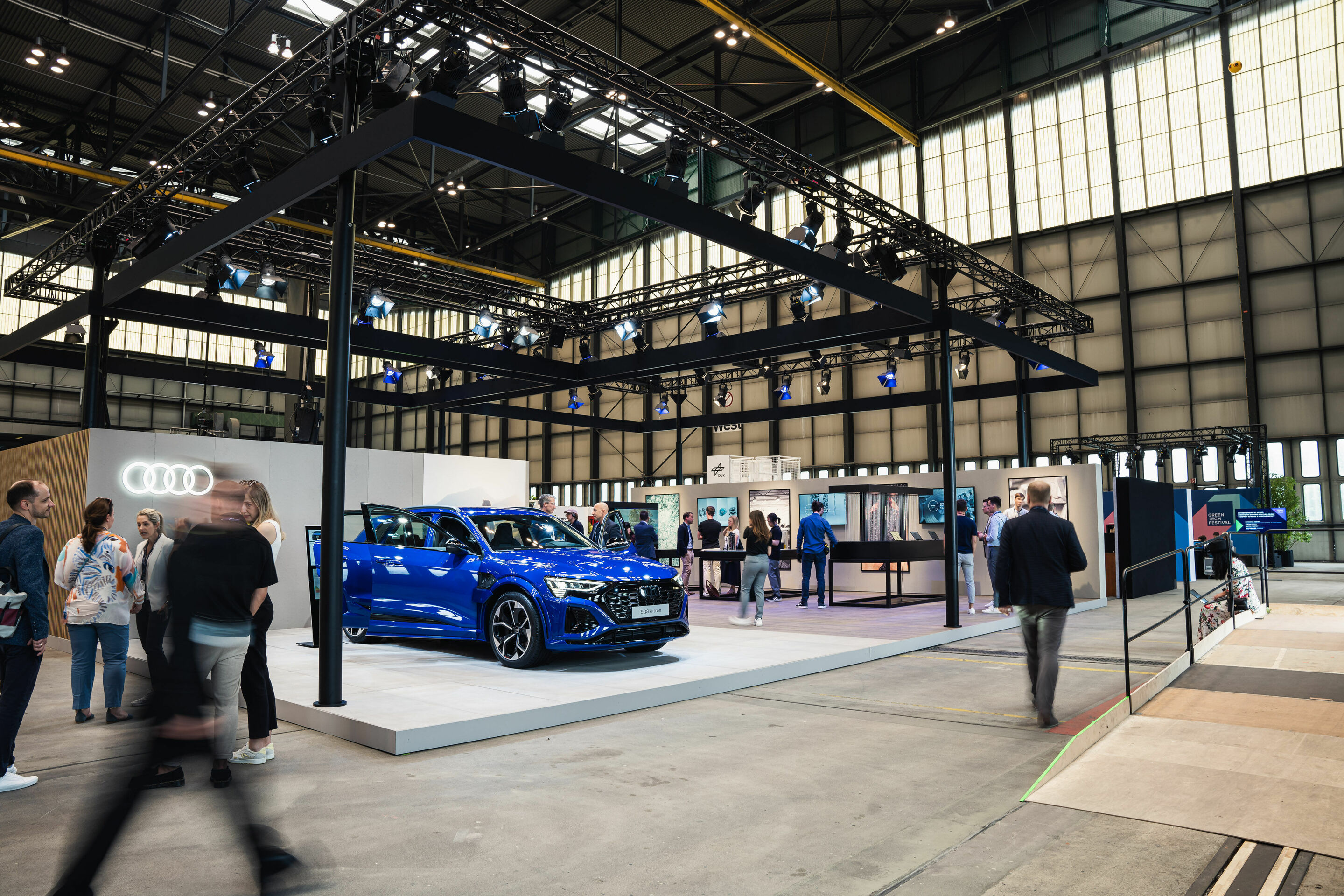
New panes from old ones: starting this fall, recycled glass will be standard in the Audi Q4 e-tron German Award for Sustainability Projects goes to “GlassLoop” Audi focuses on circular economy at sustainability conference
For the windshields in the Audi Q4 e-tron, the company with the four rings will use glass made of up to 30 percent recycled material from car windows damaged beyond repair in the future. In doing so, Audi will successfully shift the “GlassLoop” pilot project into standard production. Audi, in cooperation with its partner companies, is the first premium auto manufacturer to set up a glass cycle of this kind. Until now, car windows damaged beyond repair – mainly windshields and panoramic roofs – have been used for less demanding purposes, such as bottles or insulation, in what is known as downcycling. The pilot project was the first to demonstrate that glass could be reused at comparable quality. Audi will show just how that works from June 14 to 16 at the 2023 GREENTECH FESTIVAL in Berlin. The company has supported the sustainability conference as a founding partner since 2020.
Together with Reiling Glas Recycling, Saint-Gobain Glass, and Saint-Gobain Sekurit, Audi’s “GlassLoop” project is showing how material cycles can be put into serial production. The partner companies spent about a year jointly testing ways to make new windshields for the Audi Q4 e-tron out of defective car glass. Now the process is ready for standard production: first, the car windows are broken up into small pieces using an innovative recycling process. Then all non-glass elements, like glue residue, are eliminated. The partners melt down the glass granulate obtained in this way and feed it into the production process for automotive plate glass. The secondary content of the glass produced in this way is up to 30 percent.
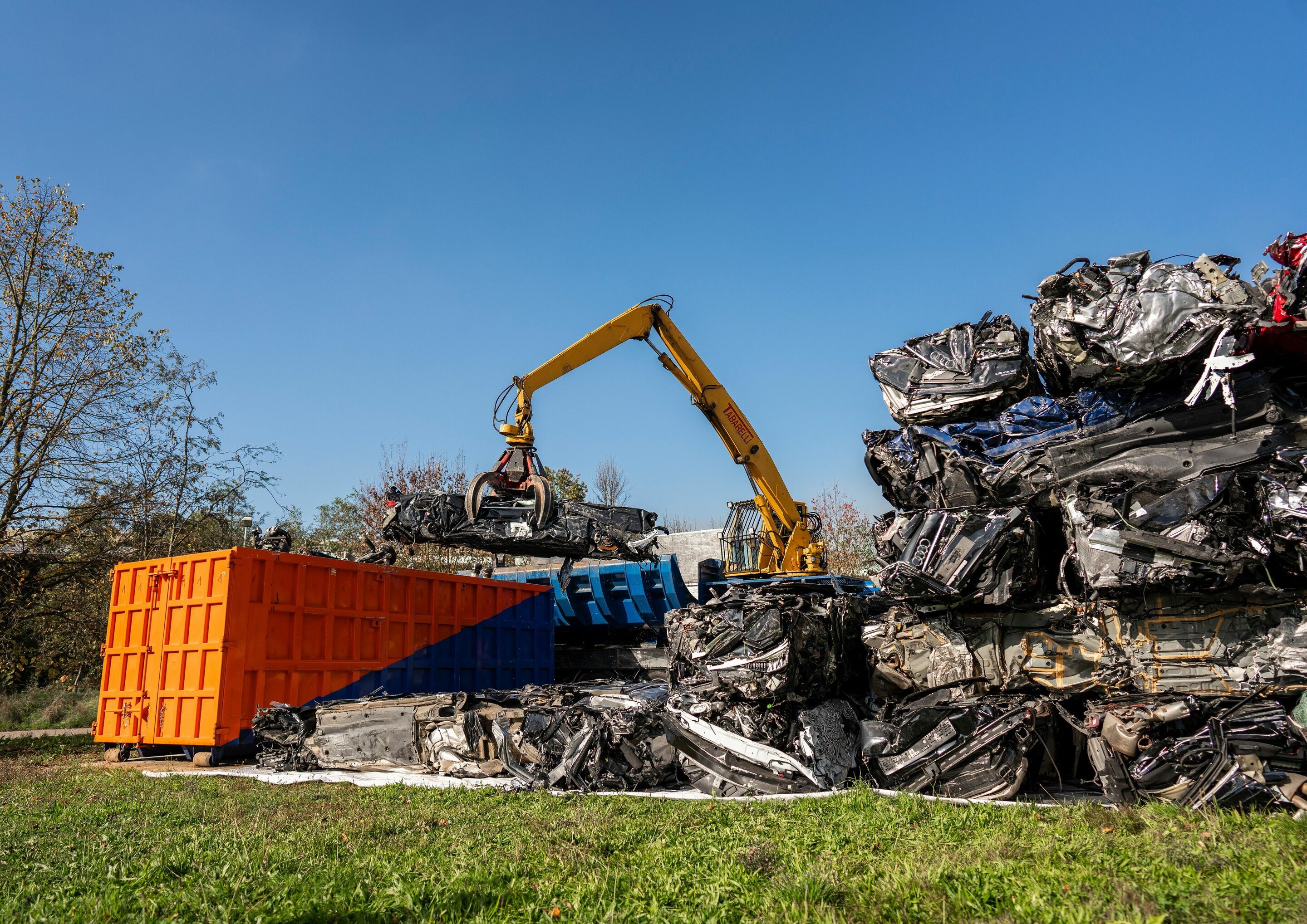 Turning old into new: MaterialLoop project tests circular economy potential of end-of-life vehicles
Turning old into new: MaterialLoop project tests circular economy potential of end-of-life vehicles
As part of Audi’s circular economy strategy, the project provides valuable insight on how a circular economy can be put into practice.
Up to now, very few of the materials used in the production of new vehicles are recovered from old cars. Steel, for example, usually ends up as structural steel after end-of-life vehicle recycling. Audi wants to change that by reusing secondary materials taken from end-of-life vehicles in the production of new cars. Downcycling, which a loss of quality in materials resulting from the recycling process, is to be avoided. “The MaterialLoop project underscores our ambitious vision to operate a highly efficient circular economy concept for end-of-life vehicles,” says Audi CEO Markus Duesmann. “It is our goal to recover as many materials as possible at a high level of quality and reuse them in production. This will save valuable primary materials and lower the products’ ecological footprint. Simultaneously, direct access to secondary materials can contribute to increased security of supply. Raw materials would no longer have to be extracted.” Back in October 2022, 100 vehicles, including among others former development cars, were dismantled as part of the joint MaterialLoop project. The targeted disassembly of individual components alone enabled the retention of high-quality secondary materials such as larger plastic pieces for recycling. After disassembly, the remaining car bodies were shredded and sorted into material groups comprising steel, aluminum, plastic, and glass, in cooperation with the partner companies. With the aim of testing the reuse of such materials in the production of new cars, Audi defined and piloted the further recycling process together with project partners from the recycling industry, the Audi supply chain, and academia. “Our emphasis on cycles within the industry enables us to use our products and the materials they’re made from for as long as possible.
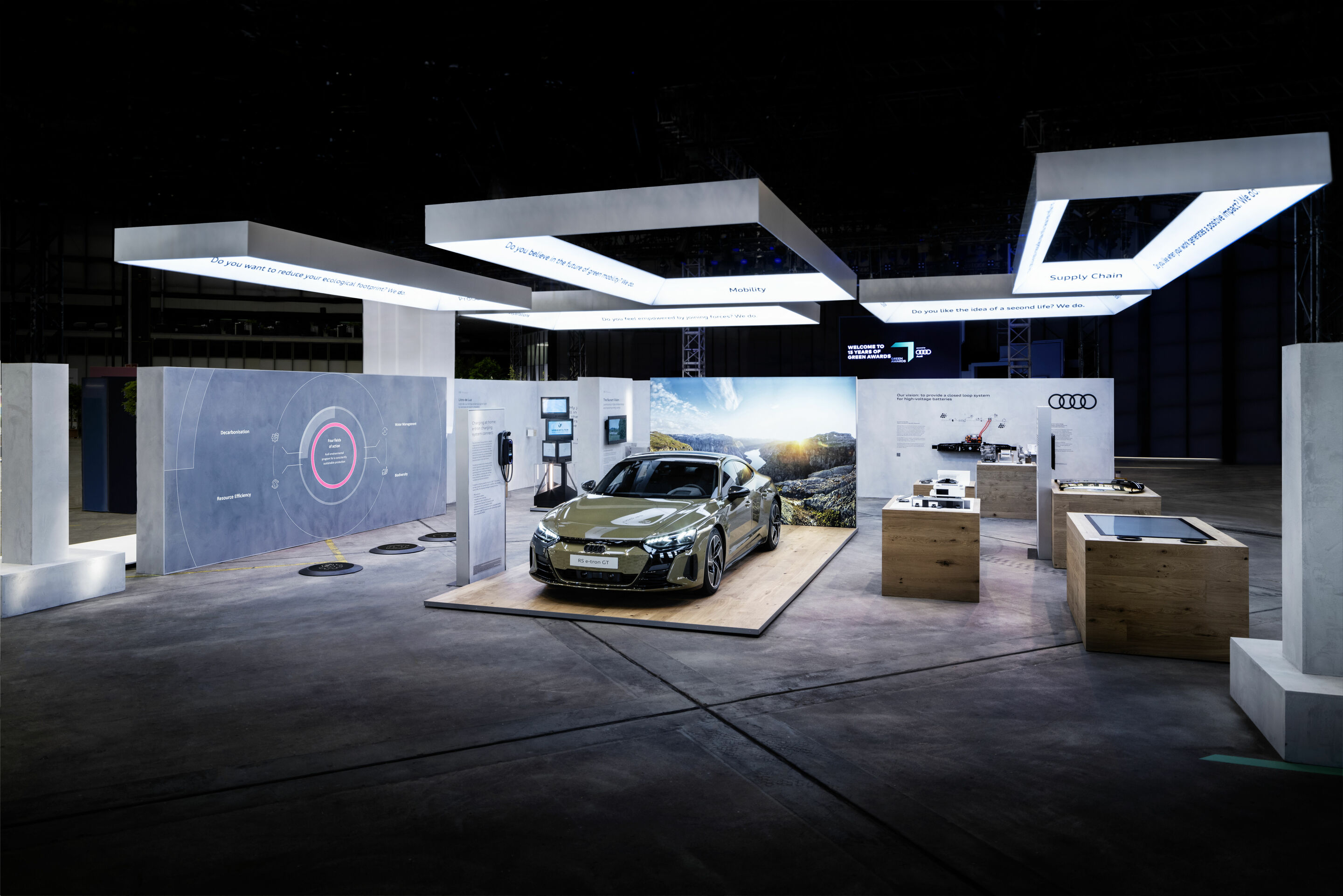
Strong voices at the GREENTECH CONFERENCE: In a fireside chat, Silja Pieh, Head of Corporate Strategy, will discuss “Circularity!”; Johanna Klewitz, Coordinator for Sustainability in the Supply Chain, will talk about “Supply Chain, Circularity, and Net-Zero-Industries” KOA22, Berlin’s first HR conference for women, will add to the conference: Miriam Mayer-Ebert, Head of General Services, will offer insights into “People Sustainability and Better Normal”; Denise Mathieu, Head of Diversity Management, will host a master class on “D&I at Audi: The Little ABC of Diversity” Audi's exhibition presence will focus on circular economy, sustainability in production and the supply chain, the Audi charging hub, and the Audi e-tron GT The Audi Environmental Foundation is starting the third project phase with Nunam: an electric rickshaw is available for test rides All information in the new Audi sustainability hub
#TogetherWeChange – The GREENTECH FESTIVAL 2022 is getting started under that motto. Europe’s biggest festival for green innovation, inspiration, and ideas will take place between June 22-24, 2022 on the grounds of Berlin’s former Tegel airport. Once more, Audi is a founding partner of the international sustainability conference and offering wide-ranging insights into its own sustainability projects. At its exhibition stand, visitors will learn about the technologies and concepts that the company has developed and put into practice to improve sustainability in its value chain. At the same time, the GREENTECH FESTIVAL will also include KOA22: Berlin’s first HR festival for women will network talent from numerous industries.
The new Audi Sustainability Hub will also illuminate the ways that Audi has integrated sustainability into every department. It just launched and is now available at Audi MediaCenter.
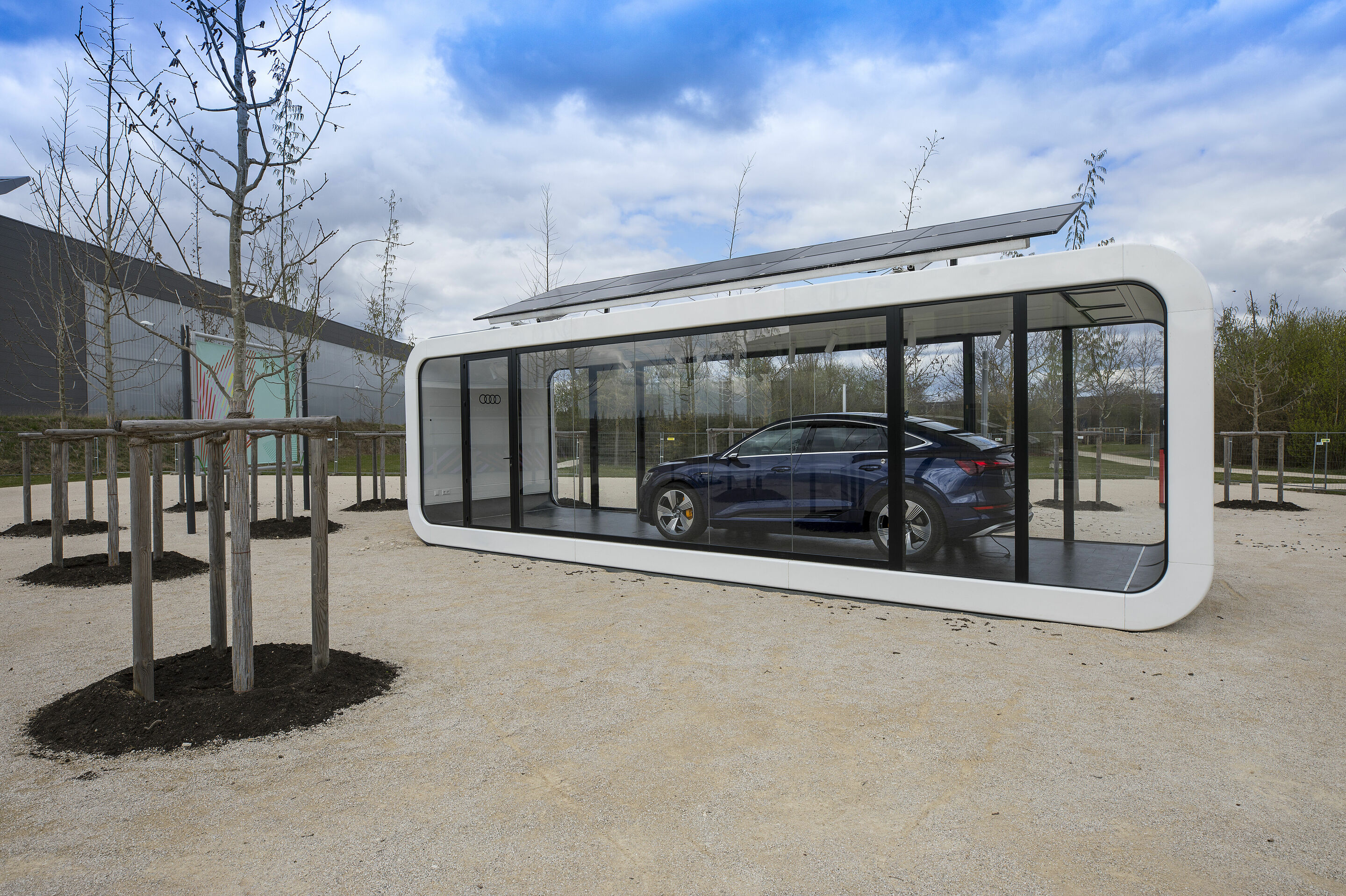 Audi at the State Garden Show Ingolstadt: company brings technology and nature to life
Audi at the State Garden Show Ingolstadt: company brings technology and nature to life
As part of the Audi environmental program Mission:Zero, Audi is hosting lectures and workshops on biodiversity and the circular economy at the State Garden Show. They are being held in the co:Lab, a café with a creative oasis that is freely accessible and located in the middle of the southern sector of the Audi plant. School classes can take part in circular economy workshops from Monday, July 12 to Friday, July 16. Preregistration at biodiversitaet@audi.de is required for all seminars. Audi’s involvement in the State Garden Show Ingolstadt also includes art and culture. Audi and the City of Ingolstadt held a public art contest back in 2019. A panel of experts chose two works of art: The city purchased “The Mirror” by Christine Perseis; Audi bought the nearly seven-meter-tall (23 ft) sculpture “Entfaltung im Raum” (“Unfolding in Space”) by sculptor Reinhard Scherer. Both works are installed permanently on the new State Garden Show grounds. On Saturday, July 10, the musicians of the Audi Philharmonic Wind Orchestra and conductor Pietro Sarno are performing a mixture of original literature and arrangement of symphonic wind music. Additional Audi employee bands will entertain visitors with various styles of music. “Jazz in the Garden” also brings the Audi Summer Concerts to the State Garden Show. As part of this concert series, jazz trumpeter Till Brönner and his band are taking the big stage on the State Garden Show grounds at 8:30 p.m. on Sunday, June 27 to perform his album “On Vacation.” The concert ticket is also a day ticket to the State Garden Show. Reservations are expected to be possible beginning Saturday, May 8. Additional information will be available from May 8 at www.sommerkonzerte.de. The activities and events are subject to the coronavirus requirements and restrictions applicable at the time of the event.
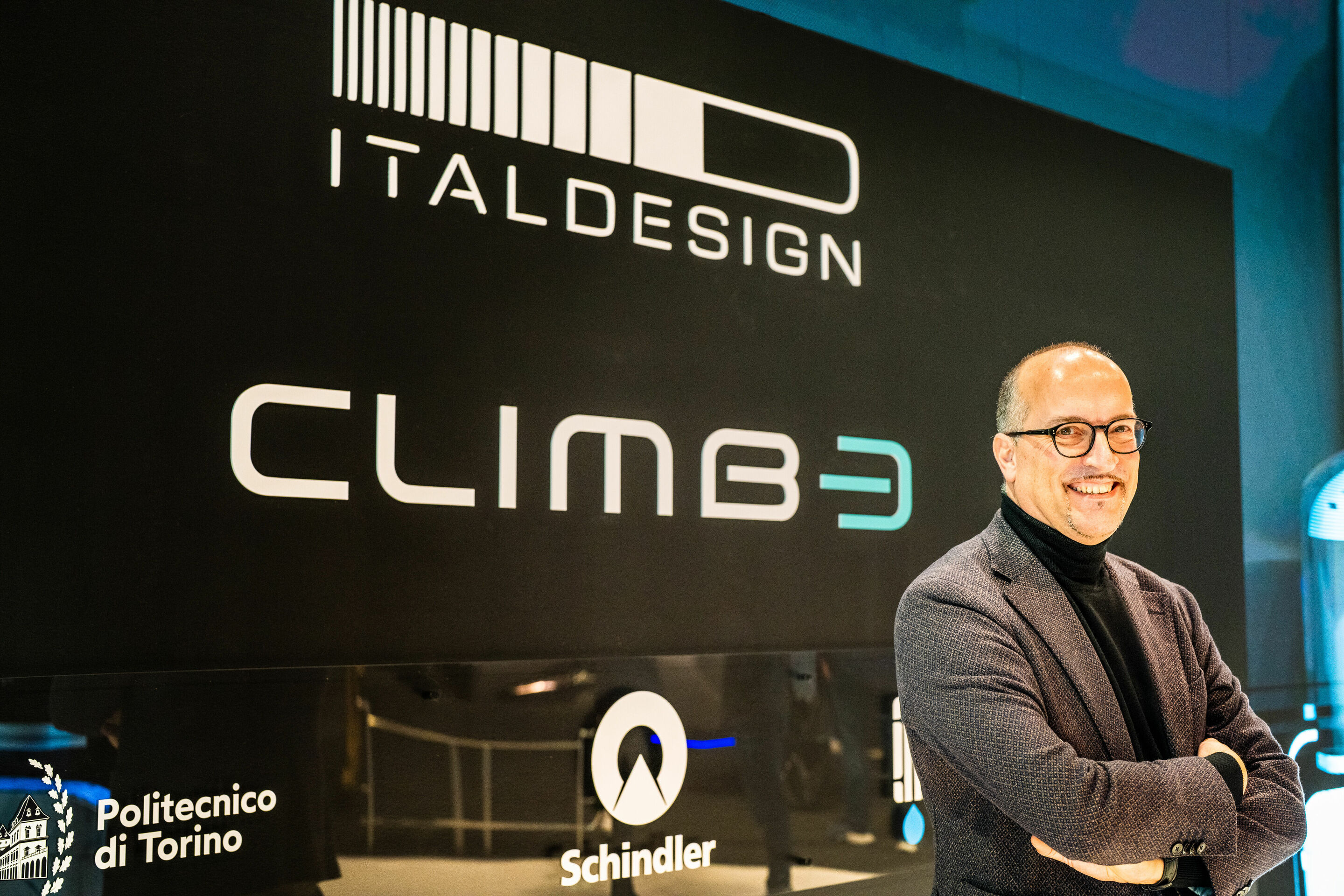 Italdesign celebrates 55 years and keeps designing the future
Italdesign celebrates 55 years and keeps designing the future
To meet the sustainability requirements inside and outside the company, the concepts of Life Cycle Assessment (LCA), Circular Economy and Sustainable Operations in the style, engineering and production activities are being analyzed on a daily basis. In the Corporate Social Responsibility area, Italdesign has structured several permanent and temporary activities that form the “Social pillar” of the Environmental, Social, Governance (ESG) framework, with substantial involvement of the in-house workforce. “Italdesign has a solid heritage,” said Antonio Casu, CEO. “Propensity to change and projection towards the future have distinguished us since 1968. We have been disruptive since the beginning of our history, and we continue to be so with our visionary creations. Climb-E is dedicated to our fifty-fifth anniversary. We developed it with Schindler Group and the Politecnico di Torino. It made its world debut few weeks ago at CES 2023 in Las Vegas It is a modular project that proposes a futuristic and inclusive mobility solution, and namely a capsule that – as the name itself states – ‘climbs’ on the structures of civil and residential buildings, so adding the third dimension to mobility. Is it a challenge that may seem improbable? Maybe, but it might meet with tangible confirmation if, for instance, we think about the 170 km-long vertical city under construction in the Saudi Arabian desert. Innovation has always been the common thread joining and directing our functions and activities, and design continues to play that same strategic role it played fifty-five years ago. With Joaquin Garcia on board as Head of Design, we will continue to bring forward new ideas and to give our strong and distinguishing contribution. We will continue to be this, and much more. Our ambition is to be the first choice for all of our customers, whether new or consolidated,” and he concluded by saying, “Happy anniversary, Italdesign.”
 Harmony in motion: inside the new Audi Q3
Harmony in motion: inside the new Audi Q3
All textile and microfiber seat covers have been systematically designed using monomaterials so they can later be recycled as single-origin materials in the circular economy, thus eliminating waste and drastically reducing the carbon footprint. Audi produces velvet velour floor mats using Econyl, a completely recycled nylon fiber made from old fishing nets, carpet remnants, and industrial waste. Audi is thus also focusing on a future-oriented and efficient use of resources in the Audi Q3.
Related content

